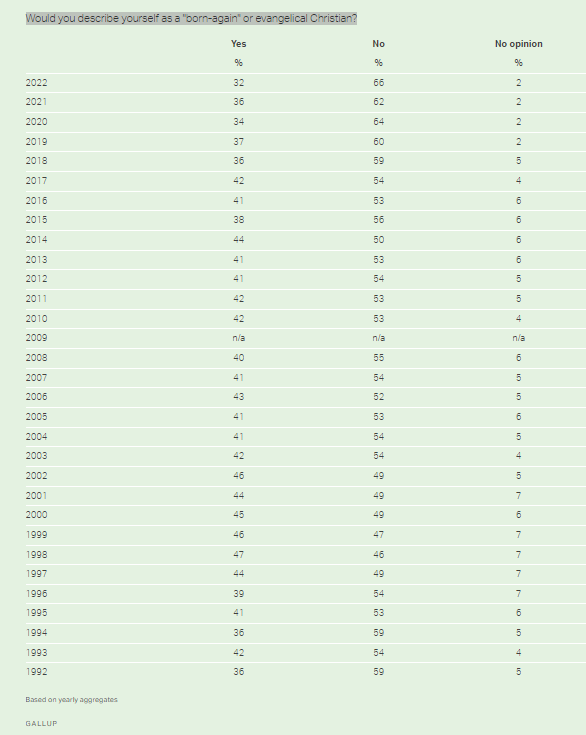At page 5 of Shepherds for Sale, Megan Basham makes the following claim:
It needed to expand beyond the borders of its liberal mainline, Catholic, and Jewish coalition and look toward the roughly 45 percent of voters who then identified as evangelical. [FN15] Thus, in 1993, the Evangelical Environmental Network was born.
Basham cites "Gallup, 'Religion'," referring the reader to this site (link). The actual data at that poll indicates that the number of self-identified evangelical Christians in 1993 was 42%. Why round up to 45%? One can only speculate regarding Basham's distortion of the data.
A more significant problem arises, however, when considering the first half of the sentence. Note that the same Gallup, "Religion," poll provides the following religious breakdown for 1993:
- Protestants 56%
- Catholics 26%
- Jewish 2%
- Mormon 1%
- Other 7%
- None 6%
- No answer 2%
Basham's argument incorrectly analyzes the Gallup data by treating "Evangelical" as an alternative to "liberal mainline, Catholic, and Jewish," when that is not how the Gallup data is collected.
Ryan Burge's "What's up with Born-Again Muslims?" highlights the problem. Because the question is a "yes/no," a surprisingly large percentage people answered by indicating themselves as Muslims in one question and by identifying themselves as Evangelical/born-again.
Similarly, in 2014, a significant amount of non-Protestants considered themselves to be "Evangelicals" as highlighted by the Pew Study (link).
The label "Evangelical" has a complex history and set of associations. Basham's main point seems to be that the "Evangelical Environmental Network" was created with that name to market to a group of folks who were less accepting of the political message of groups like Greenpeace. However, her use of data to support that claim falters, at best.


